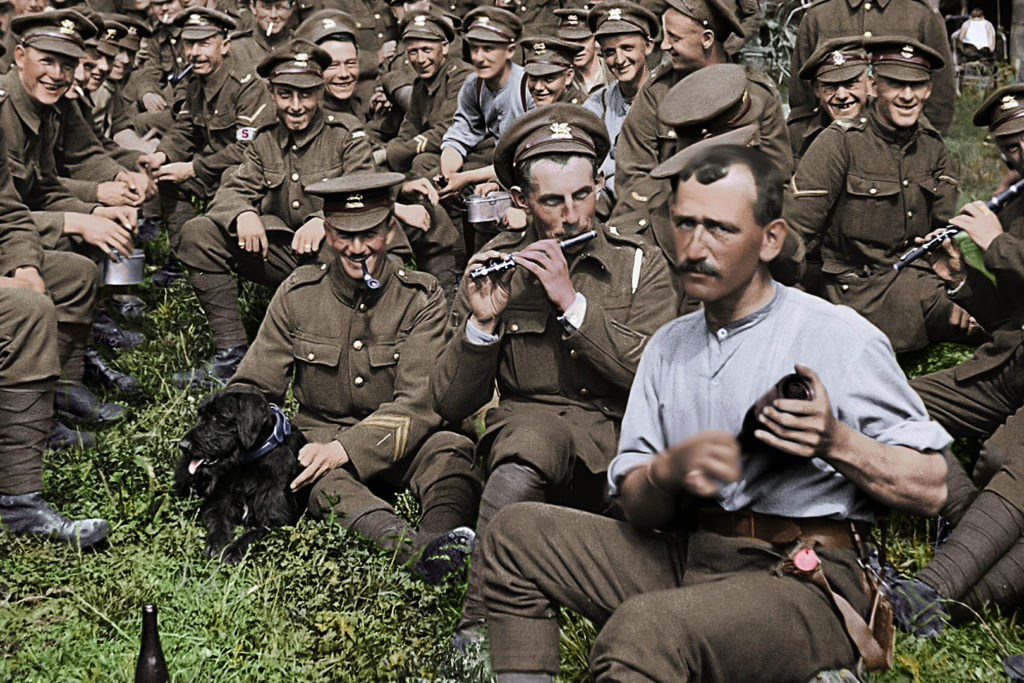
In They Shall Not Grow Old, Lord of the Rings filmmaker Peter Jackson has, for the first time, layered humanity over our understanding of World War I. By slowing down the speed of the jerky WWI film footage and adding sound and color, Jackson has allowed us to relate to the real people in the Great War. All of the narration is from the recorded oral histories of actual WW I soldiers.
Jackson started with 100 hours of archived film and 600 hours of oral histories. Removing the jerkiness by changing the film speed makes the biggest difference, but adding the sound of what we’re seeing through the work of Foley artists and even forensic lipreaders (who knew?) is also magically impactful. Jackson was meticulous in newly recording the sounds of actual WWI equipment and artillery.
Stuff that we thought we knew is made real for the first time. For example, we hear story after story of underage boys being accepted by military recruiters. The non-battle relations between the Brit and German grunts seems new. And there are new tidbits, like the “sit on the rail” sanitary technique. The soldiers’ reactions to the Armistice is unexpected – “too exhausted to enjoy it” and “the flattest feeling”. I counted 94 individual oral histories in the end credits.
They Shall Not Grow Old is about 90-minutes long and is accompanied by a fascinating 30-minute “making of” documentary. Jackson points out that soldiers had seen movies, but movie cameras were a novelty, so many soldiers are filmed staring at the camera agape and trying to hold still (as for a still camera). Jackson also takes us to see a sunken road in the film today – and explains that most of the soldiers in the archived footage were in the final 30 minutes of their lives.
As he explains in the “making of ” documentary, Jackson chose to focus on the experience of the ordinary soldier, so he does not depict the naval or air wars, the roles of women and colonial troops or the home front. It’s all-infantry all of the time. That distillation is a sound choice and allows the audience to immerse ourselves into that particular experience.
This is a generational achievement that should not be missed.
